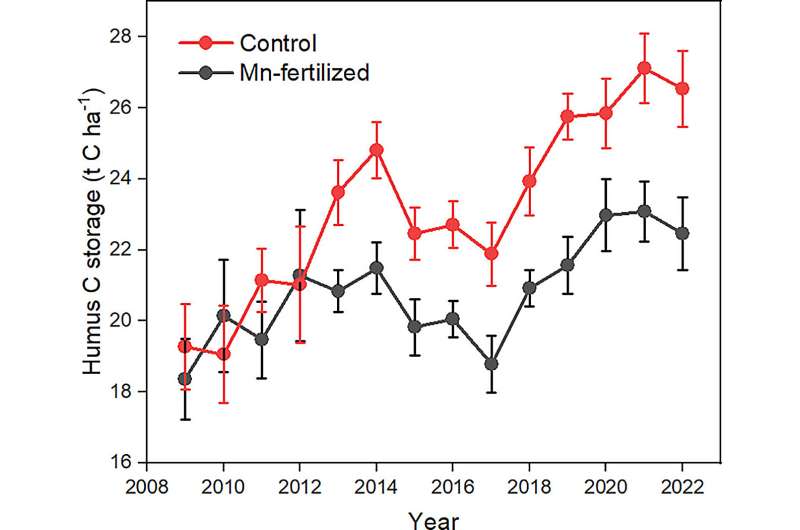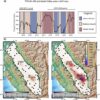It is estimated that 30% of the world’s terrestrial carbon stocks are found in the boreal forest, 60% of which is below ground. Organic soil horizons contain about one-third of the soil carbon. Therefore, the stability of boreal soils is critical to understanding global carbon cycle feedbacks to climate change and soil management. However, the regulating factors of humus carbon sequestration in the boreal forests globally are not entirely understood.
Dr. Sun Tao and his team from the Institute of Applied Ecology of the Chinese Academy of Sciences have been studying litterfall and soil carbon. They manipulated two independent but complementary experiments and then demonstrated that exchangeable manganese (Mn) is a critical factor regulating carbon accumulation in boreal forests at both regional scales and across the entire boreal latitudinal range.
The study is published in the journal Proceedings of the National Academy of Sciences.
Using a meta-analysis covering the entire boreal zone, the researchers not only ascertained that exchangeable Mn is an important factor controlling long-term humus carbon sequestration in boreal forest soils, but also provided the first global generalized Mn effect on soil organic carbon stocks for boreal forests.
Specifically, in a 14-year fertilization experiment, Mn addition reduced soil carbon stocks, but this effect of Mn addition was only apparent after four years.

Effect of annual experimental Mn fertilization (MnSO4) on humus C storage of boreal forest over 14 years. Points show mean soil C stocks in organic horizons (humus) in control and Mn-fertilized plots in a Larix gmelinii stand in boreal China (Huzhong Forest Bureau of Daxing’an Mountains). Bars are means ± SEM. © Sun Tao
The researchers showed that exchangeable Mn is essential for maintaining humus in boreal forests, to the extent that changes in global carbon cycles may be significantly affected over decades. Thus, they suggested that a more accurate representation of Mn-mediated mechanisms affecting carbon storage in biogeochemical models will increase confidence in model structure, parameter estimation, and predictions of soil organic matter production and litter decomposition.
More information:
Yunyu Zhang et al, Exchangeable manganese regulates carbon storage in the humus layer of the boreal forest, Proceedings of the National Academy of Sciences (2024). DOI: 10.1073/pnas.2318382121
Provided by
Chinese Academy of Sciences
Citation:
Scientists discover methods to regulate carbon storage in humus layer of forest in north China (2024, March 25)



